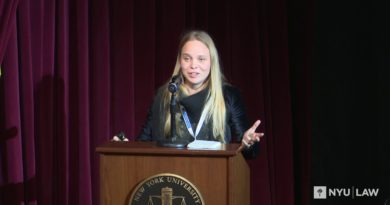Word From on High: Provide Reasoned Explanation When Departing From Established Practice | McDermott Will & Emery
In a decision on motion in an appeal from the Trademark Trial & Appeal Board, the US Court of Appeals for the Federal Circuit admonished the Board on remand to “furnish a reasoned explanation” when departing from its “established practice” on the issue of waiver. Universal Life Church Monastery v. American Marriage Ministries, Case No. 22-1744 (Fed. Cir. Nov. 22, 2023) (Chen, Cunningham, Stark, JJ.) (unpublished).
Universal Life Church filed an application to register the mark GET ORDAINED in two classes of services: ecclesiastical services and retail store services. As to both classes, American Marriage opposed on the grounds that the mark was merely descriptive and failed to function as a trademark. The Board sustained the opposition against both classes of service notwithstanding that American Marriage did not present any argument regarding retail store services. Universal Life argued that American Marriage waived its opposition to registration of the mark for retail services—an argument ignored by the Board in its decision. Universal Life appealed.
After oral argument at the Federal Circuit, the parties jointly moved to vacate the Board’s decision as it related to retail store services or to remand the matter to the Board to consider a party stipulation to that effect.
The Federal Circuit denied the motion, finding no entitlement to the “extraordinary remedy of vacatur” or circumstances necessitating a remand.
Instead, the Federal Circuit vacated the Board’s decision based on its failure to explain why American Marriage’s silence on registrability for retail store services did not constitute waiver, or to “furnish a reasoned explanation for departing from [the Board’s] established practice of deeming unargued claims waived.”
The Federal Circuit noted that the Board’s established waiver practice for inter partes proceedings was that “[i]f a party fails to reference a pleaded claim or affirmative defense in its brief, the Board will deem the claim or affirmative defense to have been waived.”
The Federal Circuit cited several precedential Board decisions, including General Mills v. Fage Dairy Processing Industry (2011), where the Board “deemed opposition claims directed to one class in a multi-class application as waived when there was an ‘absence of arguments in opposers’ brief as to anything other than [goods in the non-waived class].’” The Board’s precedent requires that “in an opposition proceeding for a multi-class application, ‘[e]ach international class stands on its own, for all practical purposes like a separate application, and [the Board] must make determinations for each separate class.’”
[View source.]






